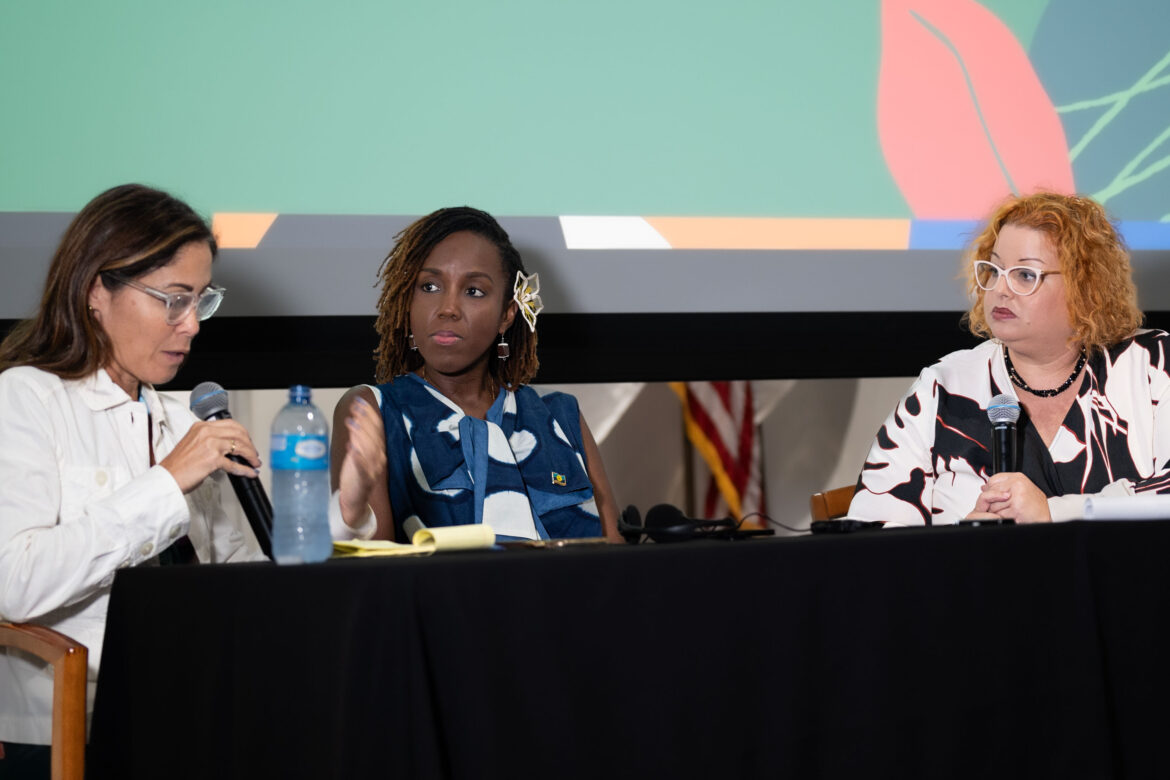“The outlook for the islands is not easy,” said climate governance expert Rueanna Haynes, referring to the experience of the Marshall Islands in the Pacific, during the keynote speech offered as part of the Caribe Fest, an event organized in Puerto Rico by the Center for Investigative Journalism (CPI, in Spanish).
Haynes said there, they have had to protect the entire coastline from the loss of corals because if they disappear — as could happen — one of their islands will also disappear. Globally, it is estimated that with an increase in temperature of 2°C (35.6°F) there will be no coral reefs left. Currently, the temperature is 1.1°C (33.98°F), but by 2030 we will have lost the opportunity to keep it under control.
“Everyone living today will experience the impact of having a warmer planet,” Haynes said.
Caribbean islands such as Puerto Rico, before reaching this dramatic point of disappearance, could see the consequence that fresh water becomes too salty to drink, coastal communities disappear, and temperatures become so high that it will be difficult or even impossible, to survive. Conditions for agriculture and, therefore, the island’s ability to produce food, will also become complicated.
This especially “catastrophic” scenario facing Puerto Rico and the Caribbean islands is due to a lack of action and planning to face the impact of the climate crisis. The failure lies in not implementing public policies that promote adaptability to the climatic events that are already occurring and, in turn, protect the ecosystems necessary to survive. Haynes, who has more than a decade of experience in climate issues in the United Nations Organization, stated this.
The former diplomat also explained the “worrying” effect of global warming throughout the region, where catastrophic hurricanes, the disappearance of corals, floods due to extreme rainfall, droughts, the rise in sea level and in temperatures, among other problems, are more common. All these phenomena are aggravated by rampant construction in areas that should be protected, such as the coastline and forests.
“We must take responsibility and that’s something I don’t see enough of. There’s a lot that can still be done in terms of planning, the types of buildings we allow to be built, where we allow them, where we allow the mangrove to be removed. All these decisions will have a very real impact on the ability to respond to a crisis caused by others,” the speaker of the TED platform explained.
She also emphasized the need to base planning and any mitigation strategy on scientific information. For this, it is necessary to overcome the challenge of the scarcity of information about the impact of the climate crisis, particularly on the islands. Only in this way, “the future will be better for all of us,” Haynes stressed.
Using the Marshall Islands again as an example, she recommended that solutions be conceptualized at the local level because when large organizations impose their own, “nine out of ten times,” things don’t work. She stressed community residents have to participate directly to achieve changes to benefit their ecosystems and must also make the sacrifices required to implement them.
Haynes also drew attention to the importance of discussing the impact of colonialism on the climate crisis, as it has a direct bearing on how international climate money is distributed. The colonies are not represented in the main negotiation processes where strategies are decided and funds distributed for preparedness and adaptation, as well as mitigation before disasters.
She also mentioned that the colonies deserve reparations for the inequality to which they are subjected and that aggravates their vulnerabilities in the face of the climate crisis, although this language is not yet used in United Nations processes, she noted.
The Caribe Fest, dedicated to the topic of the climate crisis, was held on May 4-6 with the participation of representatives from Puerto Rico and 13 Caribbean countries. The three-day conference included workshops, conferences and panels aimed at promoting oversight and the search for solutions to this problem.



